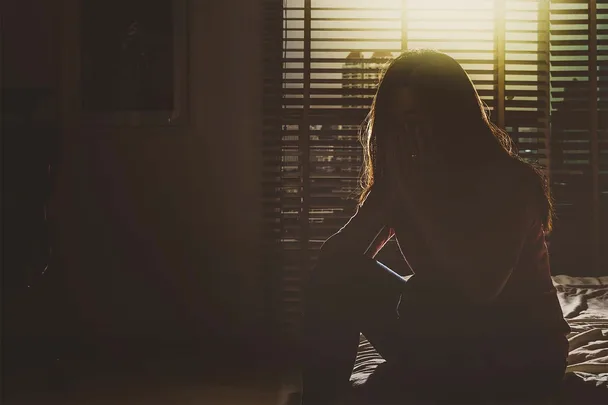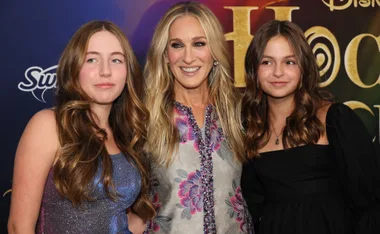On a misty March Monday, I pull my car into a quiet car park near the edge of a cliff near North Head in Manly, an affluent suburb in Sydney’s north. It’s early days in what would soon become our COVID-19 quarantine norm, so moving around and interacting in small groups is still condoned, but it’s unusually empty as the world begins to grapple with the enormity of the changes that will affect our lives.
It’s here that I’m to meet a representative from the Northern Beaches Women’s Shelter, so she can drive me to the secret suburban property that houses 10 Sydney women who are there because they have nowhere else to go. “I can’t give you an address or meet you there,” my contact explained over the phone earlier in the week. “You’ll have to arrive with me. Security is paramount.” I later learn that there have been one or two catastrophic breaches over the years. Once, a perpetrator found out that his wife had escaped to the shelter and hanged himself in a tree outside to get back at her. So the focus on safety and anonymity is unsurprising.
We drive together to the shelter, a collection of nondescript brick houses that look identical to every other dwelling on the street. It’s only when we enter the small office building that I’m aware I’m anywhere except an ordinary suburban property. At the door I’m instructed to wash my hands and cleanse them with sanitiser, as the centre’s manager, Jacqueline Leonard, makes suggestions about where different staff members should move or sit so we’re all sufficiently distanced from each other. It occurs to me that running an operation like a shelter during a pandemic, where connection and outreach and human interaction is critical to what they do, will be an enormous challenge. “Is there any chance you’ll have to stop operating if things are shut down further?” I ask Jacqueline. “No way,” she replies, without hesitation. “We are definitely, 100 per cent an essential service.”
In fact, in the terrible, terrifying time of coronavirus, women’s shelters like this, which provide a safe place for women fleeing domestic violence, or who are made homeless because of mental health or addiction issues – or sometimes all of the above – are more essential than ever. It’s well established that rates of domestic violence increase during times of crisis. Australian Bureau of Statistics data shows that stress, unemployment, a disability or health condition, poor or fair health, and low levels of life satisfaction are all significant factors for increased partner violence,* almost all of which have hit Australians in a perfect storm since the coronavirus catastrophe began earlier. Google reports a 75 per cent surge in searches for domestic violence since the shutdown began.
In Hubei province in China, ground zero for the COVID-19 crisis, domestic violence reports to police more than tripled during February’s lockdown. In the UK, nine people died in domestic-violence killings in the first week of that country’s quarantine, including nurse and mother-of-three Victoria Woodhall, 31, who was stabbed to death in the street by her husband on March 29, and two families of women and children who were killed by men in apparent murder-suicides. A report in late March from advocacy group Women’s Safety NSW, who surveyed 80 frontline workers and service providers around the state, found that 40 per cent had already seen a spike in client numbers since the statewide isolation measures began. Others said they expected numbers to skyrocket as the extraordinary conditions drag on. “We know we’re going to see more drug and alcohol abuse as people try to escape bad situations,” says outreach worker Jane† from the Northern Beaches Women’s Shelter. “There’ll be people who lose jobs, who are forced into homelessness, people whose mental health will deteriorate because of this crisis. There’s going to be some very far-reaching consequences.”
According to Jaeneen Cunningham, the chief executive officer of Safe Haven Community, a Queensland-based service that helps place vulnerable women in vetted and safe private homes around the country when they have nowhere else to go, one of the most frightening aspects about the current crisis is not just the reported influx of women seeking help from domestic violence services, but the ominous silence from those who aren’t.
“We usually receive calls from [domestic violence support] agencies, and we also receive private calls from women. The private calls have diminished,” she says.
Her sense is that women who once may have found some respite from a violent home life when they went to work, or when their husbands or partners went to work, are now unable to reach out at all. “Where once they could take the kids to school, pick them up, do the shopping, they’re now more likely to be trapped. There will be women out there right now who are stuck and we won’t even find out about them for months. It’s going to be tragic, what will come out of this.”
The Federal Government has demonstrated that it’s aware of the wave of family violence that is likely to engulf the country as a result of the COVID-19 lockdown, with Prime Minister Scott Morrison allocating an extra $150 million towards domestic violence support services including 1800RESPECT, Kids Helpline and MensLine Australia. Jaeneen says any new funding is always welcome, but she’s sceptical about the efficacy of directing funds at phone counselling, rather than the more urgent need of crisis housing. “They’re great services,” she says. “But how are they going to get a woman out of isolation with a perpetrator?” At the time of writing, different states had promised funding to be put towards temporary accommodation for vulnerable groups, but there were no details of who those groups would be or how the vulnerable would be assisted to safety.
Back at the Northern Beaches Women’s Shelter, Jacqueline shows me around the two accommodations, which each feature shared bedrooms, bathrooms, kitchens and communal areas. I meet a couple of volunteers who have arrived to help with programs such as cooking and gardening, although we all know the window for these communal activities to be allowed is closing (and indeed will have closed by the time you read this). The houses are basic, but clean and functional. What they’re not, however, is enough. There are 10 women staying in the two houses at any given time, and a further six who have been placed in transitional housing before they return to the wider community. There’s approximately another 20 who are living unassisted but still receive support from workers at the shelter. In 2019, they supported 77 women. They turned away 222.
Weeks later, with NSW under stage-three lockdown, I check in with Jacqueline again to see how things have progressed. She says there has been a marked spike in calls to domestic violence crisis lines, and a 250 per cent increase in referrals to after-hours services. The shelter is doing what it always does – while adhering to strict social distancing measures – and she hopes that the women who need assistance will know they can always reach out.
“At this stage, women and children may consider that the danger they know is safer than the danger they don’t,” Jacqueline says. “However, I believe that as the crisis continues, and individuals and families come under increasing pressure in an isolated environment, it is likely we will experience a surge of demand for accommodation and support services in coming months.”
Jaeneen says it’s up to all of us to try to look out for women we know who may not be able to reach out for help. “Be observant. Think about the friend or colleague who may have said something to you about their home life that makes you worry. This crisis isn’t just about you and whether or not you have enough toilet paper.
“Ask questions. Look around to see if people are OK. It’s very powerful for women to know that other women are looking out for them.”
Hannah’s Story
On February 20, just before COVID-19 became virtually the world’s sole focus, Australia witnessed one of the most horrifying family violence murders in recent history. Thirty-one-year-old Hannah Clarke and her three children, Aaliyah, six, Laianah, four, and Trey, three, were burned to death by the children’s father and Hannah’s estranged partner, Rowan Baxter. He ambushed them as Hannah was putting the kids in the car to take them to school, dousing the vehicle in petrol and setting it alight in broad daylight outside Hannah’s parents’ home on a suburban Brisbane street. The three children were killed inside the car. Hannah was on fire as she stumbled from the burning vehicle and died in hospital later that day, after suffering burns to 97 per cent of her body.
What is critical to understand about Hannah’s situation is that she was a classic victim of coercive control, according to both experts and her own family. Her family says that, until this incident, Baxter’s behaviour had not been physically violent. What it had been was controlling to a terrifying degree, including stalking, tracing her phone calls and telling her what she was allowed to wear. Hannah, her family said in an interview with A Current Affair after her death, wasn’t even sure whether or not she was in a domestic violence situation. “She said ‘I was thinking it wasn’t abuse because he never hit me,’” Hannah’s mother Suzanne said.
The senseless (and preventable) murder of Hannah and her children was supposed to be the final straw, the one death too far, and the trigger for Australia to take coercive control and partner violence more seriously and do more to help the women and children caught in its complex web. “We’ve done nothing since Hannah Clarke,” says Jaeneen. “I send letters every week to the Prime Minister [Scott Morrison], to the Treasurer [Josh Frydenberg]. And I always start with, ‘How did you sleep last night?’
“They give money to counselling but they don’t seem to care about women fleeing. What we need is more rooms and houses for these women to go to. Hannah went to her parents but he knew where she was. She needed somewhere safe.”
The National Sexual Assault, Family & Domestic Violence Counselling Line – 1800RESPECT (1800 737 732) – is available 24 hours a day, seven days a week for any Australian who’s experienced, or is at risk of domestic violence and/or sexual assault.
This article originally appeared in the June 2020 issue of marie claire.










